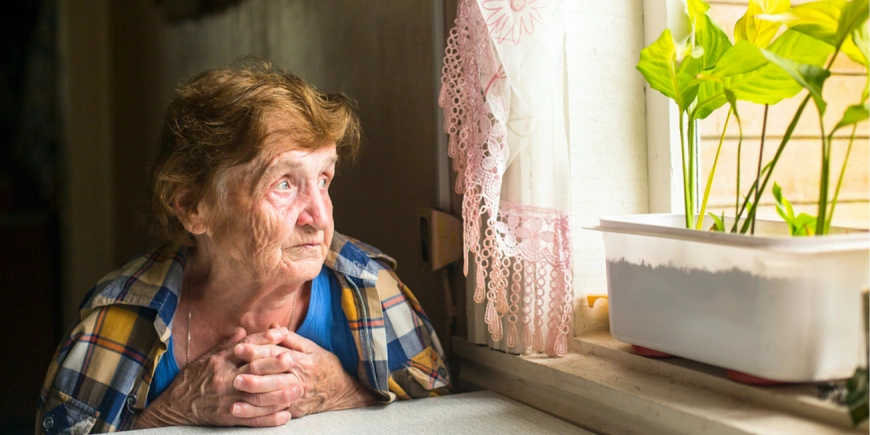Health Inequities and Social Isolation: Dangerous Comorbidities

Imagine you notice symptoms of the COVID-19 virus and are afraid you won’t get adequate care because you are a minority? The pandemic has highlighted the disparity in access to healthcare in minority communities and emphasized that this population is at higher risk for not receiving care.
Despite remarkable advances in medicine, health disparities continue to persist in the United States. Reduced response to racial and ethnic groups is growing during this public health pandemic, according to the CDC. Not only is there a disparity in healthcare for racial groups, but those with lower income status also suffer from receiving inadequate care. Chronic diseases such as obesity, heart disease, and diabetes (prevalent in African Americans, Hispanics, and other minority groups) appear to be a contributing factor to increased risk of acquiring the coronavirus. Minorities and lower-income populations face challenges obtaining medical care because they are more likely to be uninsured and may have significant language barriers.
For patient advocates, it is essential for us to recognize the societal factors that can impede health. It is the job of your patient advocate to provide you with the support and education to improve your health and empower you to make informed decisions.
Your patient advocate can:
• Locate Outreach programs and charitable organizations such as the Patient Advocate Foundation, which helps low-income families suffering from chronic diseases.
• Educate and provide you with information to ensure clarity of COVID-19 or other related medical situations.
• Help prepare you for diagnostic testing, follow treatment recommendations, and organize your medication regime.
• Seek assistance through your local SafetyNet programs.
• Help you find insurance through the Affordable Care Act (Obama Care), Medicaid, Medicare, or charitable organizations.
Understanding Social Isolation
How many times in the last few weeks have you noticed that you wave enthusiastically to strangers as you pass them on your daily walks? You look out of your home office window at every car passing by, hoping for some socialization. Many situations have alerted our mental state that we want a connection with others.
«Different groups feel the impact of isolation depending on their circumstances»
Uncertainty about the coronavirus has resulted in anxiety, fear, and stress across many segments of the U.S. population. Studies reveal that loneliness and social isolation correlate with poor physical and mental health, cognitive decline, heart disease, depression, excessive food intake, alcohol use, and even cancer mortality. According to Scientific America, loneliness can lead to a premature mortality rate of reducing a person’s life by 15 years.
It’s not only the elderly and the single adult population who are feeling the strain. The Gen Z generation (ages 7-22), and millennials, who primarily use texting and social media for communication, are feeling the effects of loneliness. Different groups feel the impact of isolation depending on their circumstances:
• Families who are suddenly facing time together under one roof. Includes parents feeling isolated and alone as they try to hold down everything together, including homeschooling children due to school closures, working from home due to work from home requests, in addition to their typical household duties.
• Young adults who are suddenly living in their childhood home with their parents after years of living independently.
• Couples (retired or working) who are isolated from their daily routines of gathering with friends.
• Singles who live alone
• Those who suffer from chronic illnesses, immunocompromised patients, and elderly populations who can’t physically leave home.
There is hope! Below are some useful strategies to use during this time.
• You can increase socialization through platforms such as FaceTime, Zoom, Skype.
• A neighborhood phone tree can help to check on those who are isolated, don’t have technical skills, or can’t leave their home for grocery shopping, daily walks, or a pharmacy run.
• If you feel you need help, we are fortunate that telepractice has expanded to treat you in your home. This article explains in detail how to see a doctor without leaving your house: www.syracuse.com/coronavirus/2020/03/coronavirus-tips-how-to-see-a-doctor-without-leaving-your-house.html
• The Boris Lawrence Henson Foundation offers free virtual therapy for mental health: borislhensonfoundation.org
During this time of uncertainty, it is normal to feel stress, anxious, or alone. Keep in mind, even though you feel isolated and alone, someone is willing to listen and talk. Reach out to a professional if you need help or to a friend for daily socialization. For more help or information, please contact angie@medicaladvocacyplus.com or visit www.MedicalAdvocacyPlus.com
